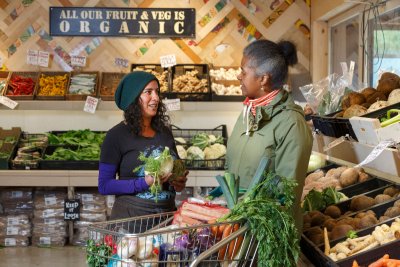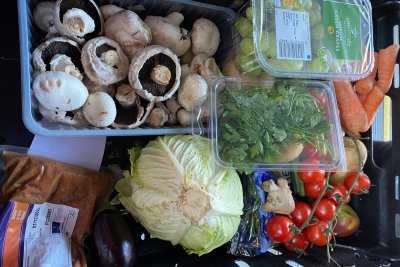Antibiotic resistant E.coli in supermarket meat is a wakeup call for hospital food
The Campaign Better Hospital Food is alarmed by a new study that has found worrying levels of antibiotic-resistant E.coli bacteria in British supermarket meat. We want the NHS to look again at their supply chains and ensure they do not support farming techniques that undermine the antibiotics that our health service relies upon to keep us well.
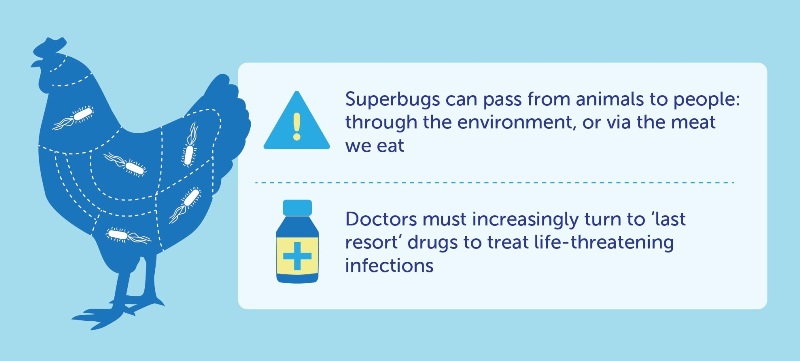
Last week Scientists at Cambridge University discovered dangerous levels of antibiotic resistant E.coli on chicken and pork bought from major British supermarkets. The E.coli was found to be resistant to antibiotics essential for treating serious human infection and The Campaign for Better Hospital Food is concerned by the effect this will have on patients and staff in NHS hospitals, as well as on the treatment of severe diseases that can be caused by E.coli, such as blood poisoning and meningitis.
The evidence from the study, commissioned by the Alliance to Save our Antibiotics, lays bare the negative health impacts of intensive farming techniques that routinely treat healthy animals with antibiotics essential for human health. Hospitals food standards are comparable with supermarkets when it comes to buying meat products, so it is likely that this study is indicative of the meat used in hospital kitchens, and by hospital catering suppliers.
To call a halt to this developing crisis the Campaign for Better Hospital Food urge the NHS to move away from using and serving meat sourced from animals routinely treated with antibiotics. We ask Trusts to commit to adapting their supply chain to support farmers and producers with higher welfare standards that reduce the need for farm antibiotics.
Buying and serving healthy meals that support the healing process should be a crucial aim of the NHS and hospitals should no longer support intensive livestock farming practices that foster antibiotic resistance and put essential antibiotics at risk.
“Apocalyptic scenario”
Sally Davies, the Chief Medical Officer for England, has warned of an “apocalyptic scenario” in the next 20 years. People could die of routine infections during simple operations “because we have run out of antibiotics”. Over-use of antibiotics in both human medicine and farming has been identified as the main causes of antibiotics losing their efficacy.
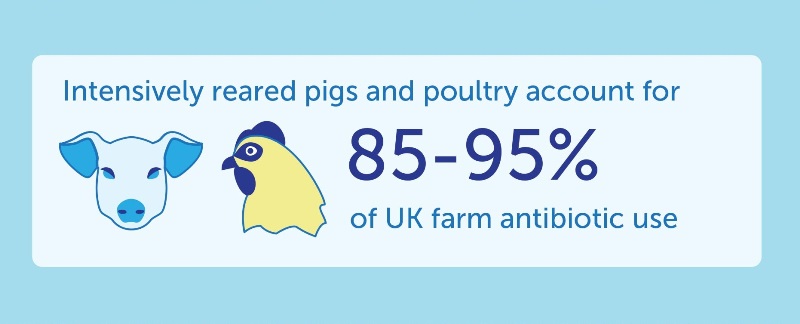
The Evidence
The Alliance to Save our Antibiotics found high levels of antibiotic-resistant E.coli bacteria in UK origin chicken and pork purchased from Tesco, Sainsbury’s, Asda, Aldi, Waitrose, the Co-op and Morrisons. One in four chicken products were contaminated with ESBL E.coli, which are resistant to key antibiotics that are relied upon to treat blood-poisoning and other serious infections. E.coli resistant to the antibiotic trimethroprim, which is used to treat over half of lower urinary-tract infections, was found in 51% of chicken and pork samples bought from all seven of the top UK supermarkets.
“This should be a wake-up call for supermarkets and the government”
Dr Mark Holmes, from the University of Cambridge, who conducted the tests, is very concerned, he said “The levels of resistant E.coli that we have found are worrying. Every time someone falls ill, instead of just getting a food poisoning bug they might also be getting a bug that is antibiotic resistant.” "This should be a wake-up call for supermarkets and the government", said Cóilín Nunan, a scientific adviser to the Alliance to Save Our Antibiotics. “They show that many consumers are being exposed to high levels of antibiotic resistance daily at meal time.”
E.coli is by far the most common cause of urinary-tract infections and dangerous blood poisoning and can also cause meningitis. These infections must be treated with antibiotics. Yet, mass medication currently accounts for +85% of veterinary antibiotic use – mainly in intensive pig and poultry farming. But many businesses are proving that it is possible to farm using far fewer antibiotics, and organic systems are able to maintain the health of animals with minimal antibiotic usage.
Hospitals have a key part to play in tackling this issue through their supply chains. They could use their considerable buying power to protect public health and support livestock systems where animals are kept healthy through good welfare, not routine medication. Such a shift could exert upward, positive pressure on the supply chain, and also send a clear message to patients and their families that NHS Trusts are taking this issue seriously.
Failure to grasp this opportunity will be costly, and the burden will ultimately fall on the shoulders of our already overstretched hospitals.
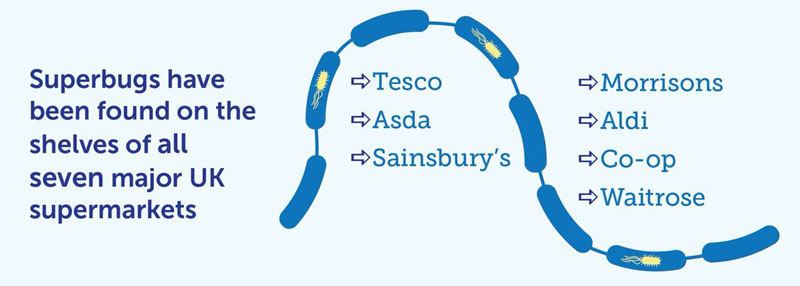
Published Tuesday 13 September 2016
Better Hospital Food: The campaign represents a coalition of organisations calling on the Westminster government to introduce mandatory nutritional, environmental and ethical standards for food served to patients in NHS hospitals in England.



